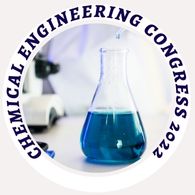Green and Sustainable Chemistry
It is called as economical science that goes under the class of science and synthetic designing which centers around plan of items and cycles which wipes out the utilization and age of perilous substances. The Environmental science centers around the impacts of contaminating synthetics on nature. The objective of green science is to give a protected plan to particles, materials and items. It is considered as an amazing asset so the specialists utilize it to assess the ecological effect of nanotechnology.
- to maximize the amount of raw material
- the use of safe, environmentally benign substances
- the use of renewable material
- the design of energy efficient processes
- avoiding the production of waste
Related Conference of Green and Sustainable Chemistry
Green and Sustainable Chemistry Conference Speakers
Recommended Sessions
- Biochemical Engineering
- Biomaterials and Biopolymers
- Catalysis and Reaction Engineering
- Catalysis and Zeolites
- Catalysis for Biorefineries
- Catalysis for Chemical Synthesis
- Catalysis for Energy
- Catalysis in Nanotechnology
- Catalytic Materials & Mechanisms
- Catalytic Pyrolysis
- Chemical Engineering in Nanotechnology
- Chemical Kinetics
- Drug discovery and synthesis
- Electrocatalysis
- Environmental Catalysis
- Enzymes, Biocatalysis and Biotransformation
- Fluid dynamics & its Phenomena
- Green and Sustainable Chemistry
- Heterogeneous Catalysis and Homogeneous Catalysis
- Industrial Chemistry
- Molecular Catalysis
- Organocatalysis
- Organometallics and Synthesis
- Petrochemical Engineering
- Photocatalysis
- Plasma Catalysis
- Polymer Chemistry
- Surface Chemistry
Related Journals
Are you interested in
- 3D Printing in Microfluidics - Microfluidics 2026 (Germany)
- AI & Automation in Microfluidic Systems - Microfluidics 2026 (Germany)
- Biomedical Microfluidic Applications - Microfluidics 2026 (Germany)
- Clinical Translation & Commercialization - Microfluidics 2026 (Germany)
- Droplet-Based Microfluidics - Microfluidics 2026 (Germany)
- Lab-on-a-Chip Innovations - Microfluidics 2026 (Germany)
- Microfabrication & Soft Lithography - Microfluidics 2026 (Germany)
- Microfluidic Biosensors & Diagnostics - Microfluidics 2026 (Germany)
- Microfluidic Cell Culture Platforms - Microfluidics 2026 (Germany)
- Microfluidics for Drug Delivery - Microfluidics 2026 (Germany)
- Microreactors & Chemical Processing - Microfluidics 2026 (Germany)
- Nanofluidics & Molecular Transport - Microfluidics 2026 (Germany)
- Organ-on-Chip Engineering - Microfluidics 2026 (Germany)
- Point-of-Care Microdevices - Microfluidics 2026 (Germany)
- Single-Cell Microfluidic Analysis - Microfluidics 2026 (Germany)

